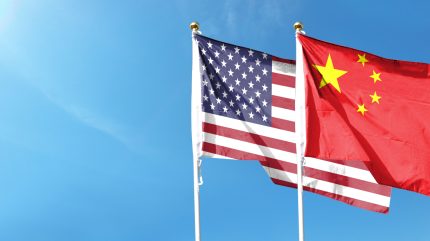
Chinese battery giant CATL has signalled it could build a manufacturing plant in the US if President-elect Donald Trump softens his stance on Chinese investment in the US EV supply chain.
The company’s founder and chairman, Robin Zeng, made the comments in a recent interview with Reuters, fuelling hopes that a shift in US trade policy could accelerate the country’s transition to clean energy.
Zeng said: “Originally, when we wanted to invest in the US, the US government said no, For me, I’m really open-minded.”
This comes amidst trade barriers imposed by both the US political parties, which have restricted Chinese EV and battery firms’ access to the market.
Chinese electric-car and battery makers have faced substantial trade restrictions in the US market, with bipartisan support for protectionist measures.
These barriers have been justified on competitive and national-security grounds and have included tariffs and exclusion from consumer EV subsidies.
How well do you really know your competitors?
Access the most comprehensive Company Profiles on the market, powered by GlobalData. Save hours of research. Gain competitive edge.

Thank you!
Your download email will arrive shortly
Not ready to buy yet? Download a free sample
We are confident about the unique quality of our Company Profiles. However, we want you to make the most beneficial decision for your business, so we offer a free sample that you can download by submitting the below form
By GlobalDataThe Biden administration enforced policies that limit the use of Chinese technology in connected cars and have maintained a 100% tariff on Chinese EV imports.
Despite these challenges, the possibility of a US plant remains on the table for CATL.
Zeng expressed hope for future investment opportunities, stating: “I do hope that in the future they are open to investments.”
President-elect Donald Trump has also indicated a willingness to incentivise foreign companies to build vehicles in the US, which could pave the way for CATL’s expansion.
CATL’s current involvement in the US market is limited to battery-production licensing agreements.
Tesla has struck a licensing deal with CATL for battery production in Nevada, which is set to launch in 2025.
This agreement allows CEO Elon Musk to focus Tesla’s capital on AI and autonomous vehicles, while CATL continues to supply batteries for Tesla’s profitable Shanghai factory.
Zeng, who has met Musk several times, agreed with Musk’s vision for AI-powered autonomous vehicles but criticised his reliance on the 4680 cylindrical batteries, calling it a failed approach due to its electrochemical challenges.
Zeng also addressed Musk’s tendency to set unrealistic timelines for new technologies, like Tesla’s self-driving cars, suggesting that Musk’s two-year predictions often don’t align with the reality of development, which could take longer.



